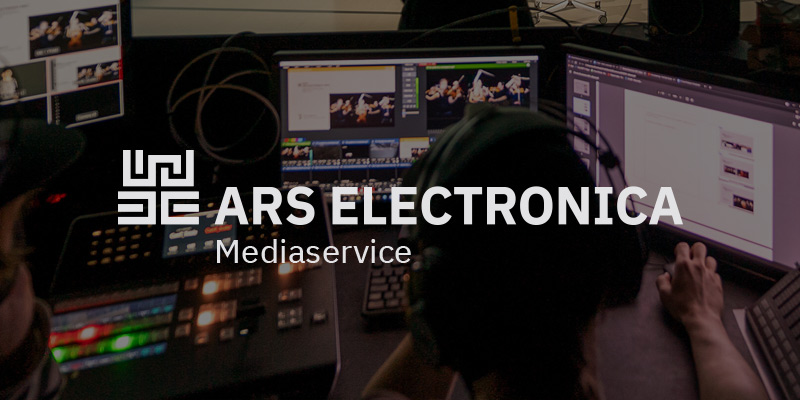Press Release as PDF
Submissions and info: Prix Ars Electronica 2021
Photo album Best of Prix Ars Electronica
Photo album Best of Ars Electronica Festival 2020
Documentary Ars Electronica Festival 2020
Ars Electronica Home Delivery
Photo album Ars Electronica Home Delivery
Ars Electronica Blog
(Linz, 15.3.2021) The deadline for the Prix Ars Electronica 2021 ends today. The Prix, instituted 34 years ago in Linz, is considered the longest-standing, most important competition for the worldwide media art scene. The prestige and influence of the Prix Ars Electronica are due to its wide reach, which allows it to function as a kind of trend barometer. The thousands of projects submitted to the Prix Ars Electronica each year allow us to see what is on the minds of media artists all over the world. “The trend we’re currently seeing is worrying,” says Gerfried Stocker, taking stock of this year’s entries so far. “There’s been a marked decline in submissions, and many personal e-mails show that artists all over the world are under massive pressure and simply don’t have the opportunities to implement or complete their projects.” Museums that have been closed for months, festivals that have been canceled, residencies that have been interrupted or canceled, and inadequate help—or none at all—from policymakers are ongoing problems. “This is having a dramatic effect, not only on the artists themselves, but on all of us,” says Gerfried Stocker. “After all, this isn’t about decorating foyers or blockbuster exhibitions for urban mass tourism—what we’re really threatened with is the long-term loss of thoughtful reflection on our societal development.” That is a particularly sad prospect in a time of massive upheaval. “In the interest of everyone, we must act now to ensure that the critical and innovative potential of art is preserved,” demands Stocker. “Helping artists today means helping us as a society move forward tomorrow. If we don’t realize that, we will regret it very soon and for a very long time.”
A challenge not only for politics, but for art and cultural institutions themselves
There is no doubt that politics must do much more for the arts, and soon. However, this is also an area where art and cultural institutions need to challenge themselves, especially the long-established ones. “We need to be clear about what social role our institutions should play in the future,” says Gerfried Stocker. “Instead of scrutinizing attendance figures and revenues, we must take more risks and lead the way. That is what should be expected, indeed demanded, not only of art itself, but also of the institutions that promote it.” The focus should not be on big names, but rather on big questions. Stocker is convinced that “Art unfolds its unique potential when it addresses those questions that concern us all here and now.”
Innovative platforms and formats…
New strategies of communication and interaction with the general public are needed. “As a leading international platform for media art, Ars Electronica has a particular duty to meet that challenge,” insists Gerfried Stocker. “Since last year, we’ve been working flat out to meet this demand.” That is why we went ahead with the Ars Electronica Festival in 2020—not to maintain our historical reputation and certainly not to make a profit. “By turning the giant festival in Linz into a hybrid event at 120 locations around the globe, hundreds of artists received commissions despite the Corona crisis and thus had the opportunity to advance and present their projects.”
With “Ars Electronica Home Delivery,” we also developed a virtual and interactive format that made the artistic and scientific examination of the future accessible to a variety of target groups even in lockdown. In the future, this format will continue to enable the Ars Electronica Center to reach people far beyond the conventional geographic and social radius of a museum. “‘Home Delivery’ also opens the door to local artists and scientists to communicate their perspectives and projects and to engage in conversation with many people throughout the year. Whether it’s brain research, space exploration, genetic engineering, AI, or media arts and concerts, ‘Home Delivery’s’ media library is now as diverse as it is comprehensive, with new offerings added every week.”
… more contests and higher prize money.
Competitions for artists are more important than ever. “Open calls promise prize money on the one hand and open up access to rare platforms on the other,” says Gerfried Stocker. “That’s why we decided on short notice to endow the ‘Prix Ars Electronica’ with even more money and, in addition to the 10,000 euros that go to the winners of the Golden Nicas, to pay out another 3,000 euros for a total of six ‘Awards of Distinction.’” In addition, there are two new competitions this year that also award prize money. “For the first time, we’re offering the ‘Isao Tomita Special Prize,’ worth 5,000 euros, and we’ve initiated the ‘Award for Digital Humanity,’ worth 10,000 euros, together with the Austrian Foreign Ministry.” Even if they don’t win a main prize, participants will have a chance to present their project at this year’s Ars Electronica Festival in September, which will once again be a hybrid event. “We’ll do everything we can to commission as many artists as possible to present their work,” announces Gerfried Stocker. “So I hope as many artists as possible will still manage to participate in these competitions.”
Photo:
Goldene Nicas / Photocredit: vog.photo / Printversion
Photo:
Isao Tomita / Photocredit: Keishi Miura / Printversion
Photo:
Ars Electronica Home Delivery – Node.Linz – Wipeout / Fotocredit: Ars Electronica – Robert Bauernhansl / Printversion / Photo album Best of Ars Electronica Home Delivery
Photo:
Ars Electronica Festival 2020 / Fotocredit: tom mesic / Printversion / Photo album Best of Ars Electronica Festival 2020


